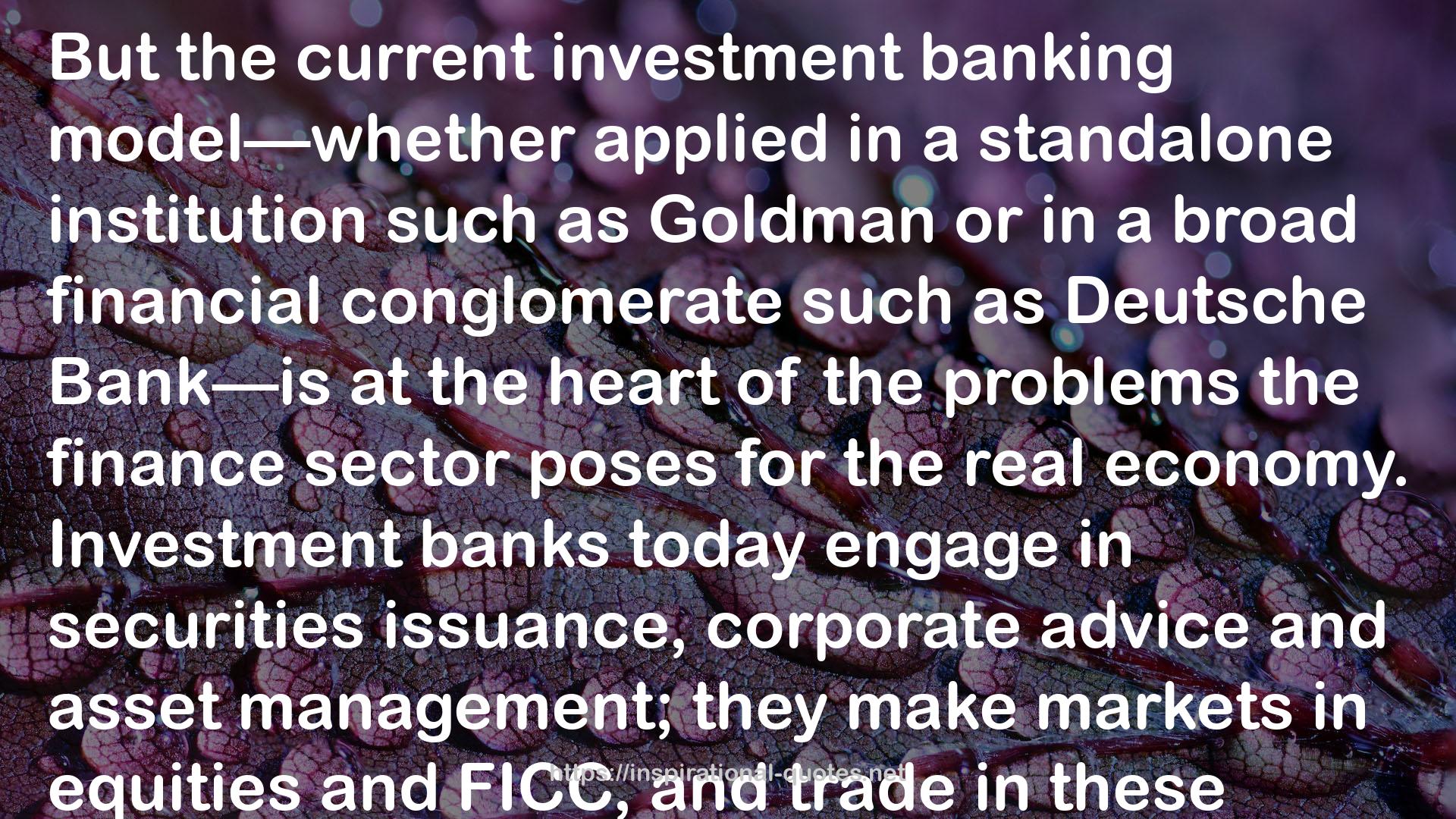" But the current investment banking model—whether applied in a standalone institution such as Goldman or in a broad financial conglomerate such as Deutsche Bank—is at the heart of the problems the finance sector poses for the real economy. Investment banks today engage in securities issuance, corporate advice and asset management; they make markets in equities and FICC, and trade in these markets on their own account. It is only necessary to list these functions to see that each of these activities conflicts with all the others. Each should be undertaken in distinct institutions. And with lower volumes of inter-bank trading, a diminished role for public equity markets and much more direct investment by asset managers the scale of most of these activities should be much reduced. Among all the actors in the finance sector today, only the asset manager, who typically earns a fee calculated as a percentage of funds under management, is rewarded for idleness. The profits of a segregated deposit-taking bank would similarly depend primarily on the scale of the deposit base, and secondarily on its success in making good loans. Dedicated channels of capital allocation have a more appropriate incentive structure than activities focused on trading and transactions. Whenever "
― , Other People's Money: The Real Business of Finance
